#public appearances 2015
Photo




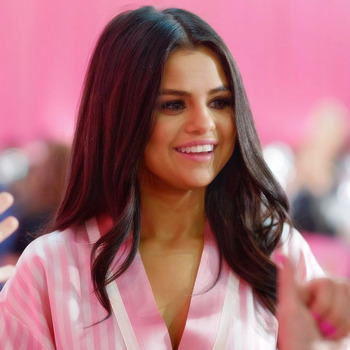
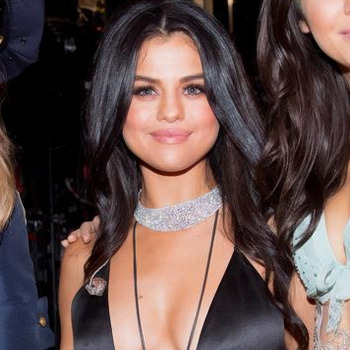
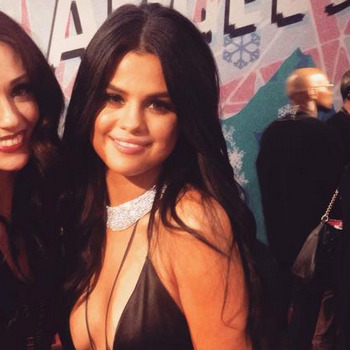

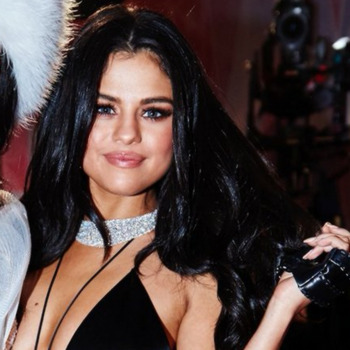
♡ like or reblog if you save ♡
#selena gomez icons#selena gomez#victorias secret#public appearances#public appearances 2015#personal photos#selena 2015#black hair#long hair#selena in black
28 notes
·
View notes
Text


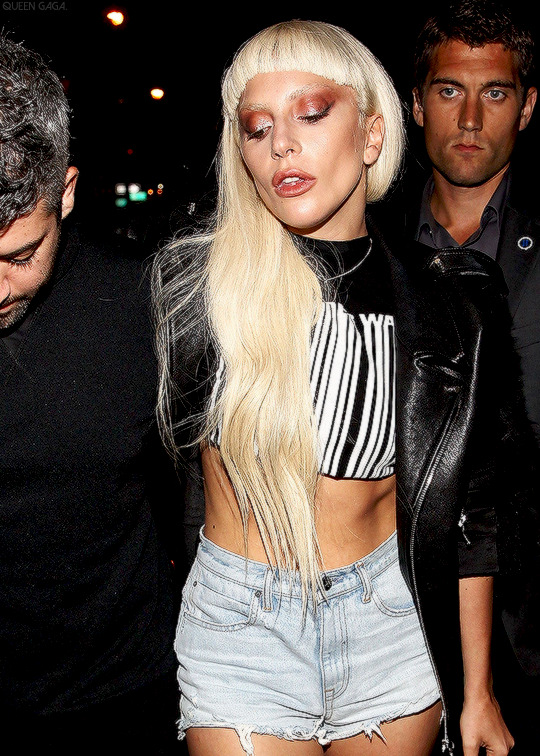
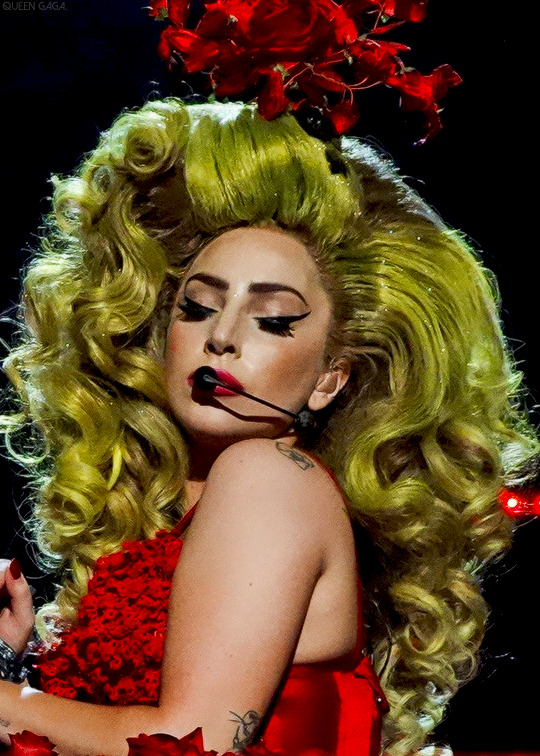
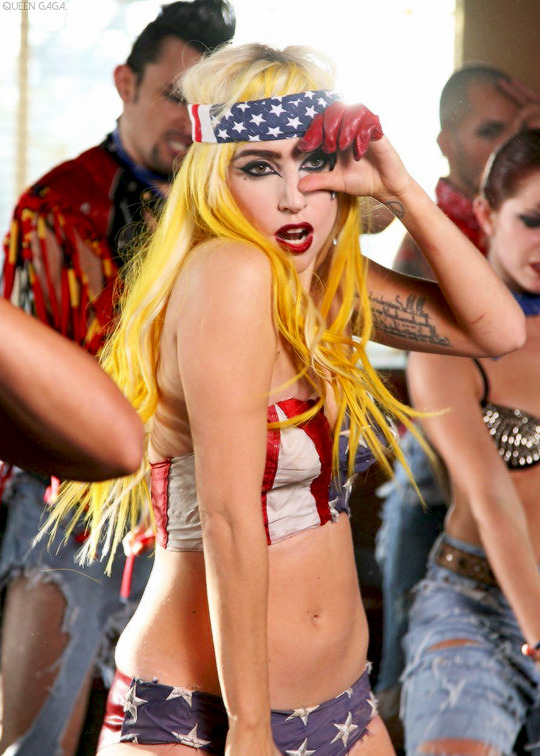
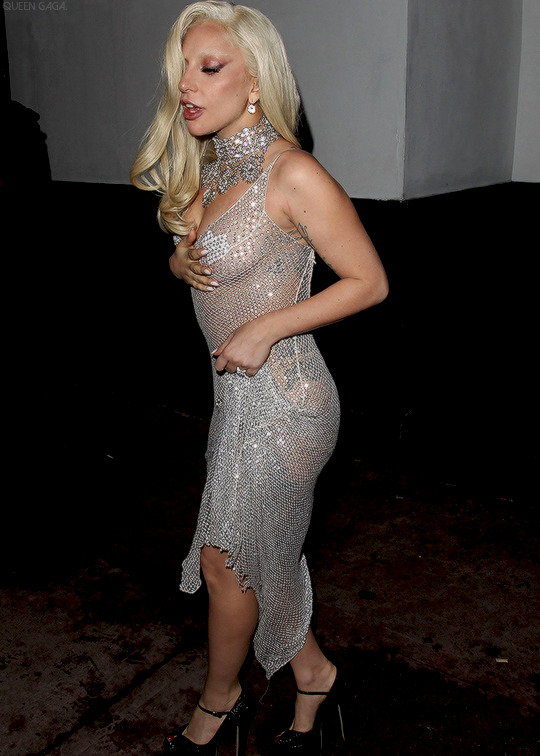
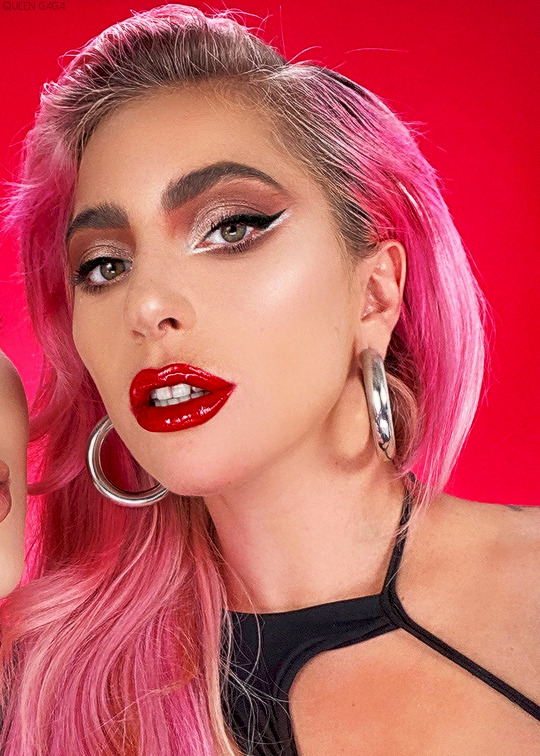

Lady Gaga, 28 de marzo de 1986, Nueva York, Estados Unidos.
¡Felices 38 años Lady Gaga!
45 notes
·
View notes
Text

Natasha Lyonne y Yael Stone en la alfombra roja de los premios "Primetime Emmy" en Los Ángeles (20/09/2015).
#natasha lyonne#yael stone#nlyonneedit#ystoneedit#public appearances#2015#orange is the new black#oitnb#oitnbedit#oitnb cast#oitnbcast#oitnbforever#event
21 notes
·
View notes
Text
Camila Mendes 2015-2016 and before that
PUBLIC APPEARANCES

PHOTOSHOOTS
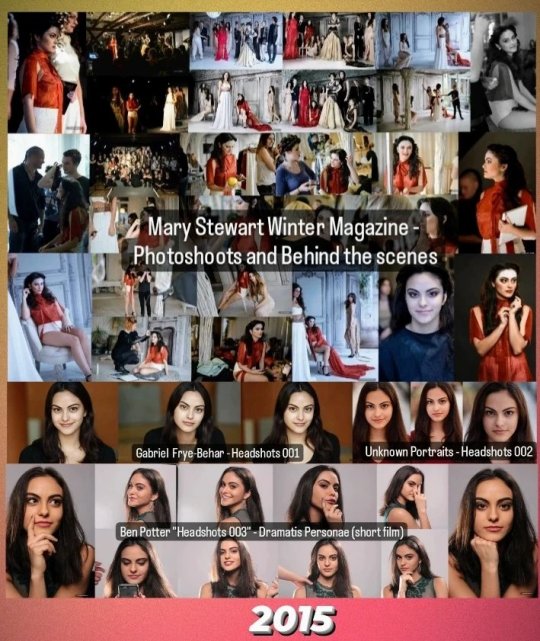

PERSONAL PHOTOS
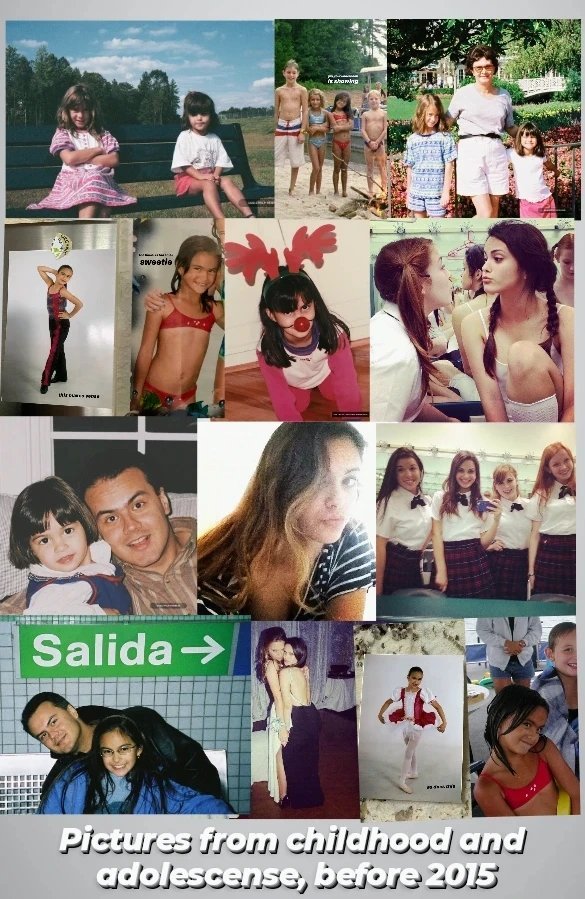

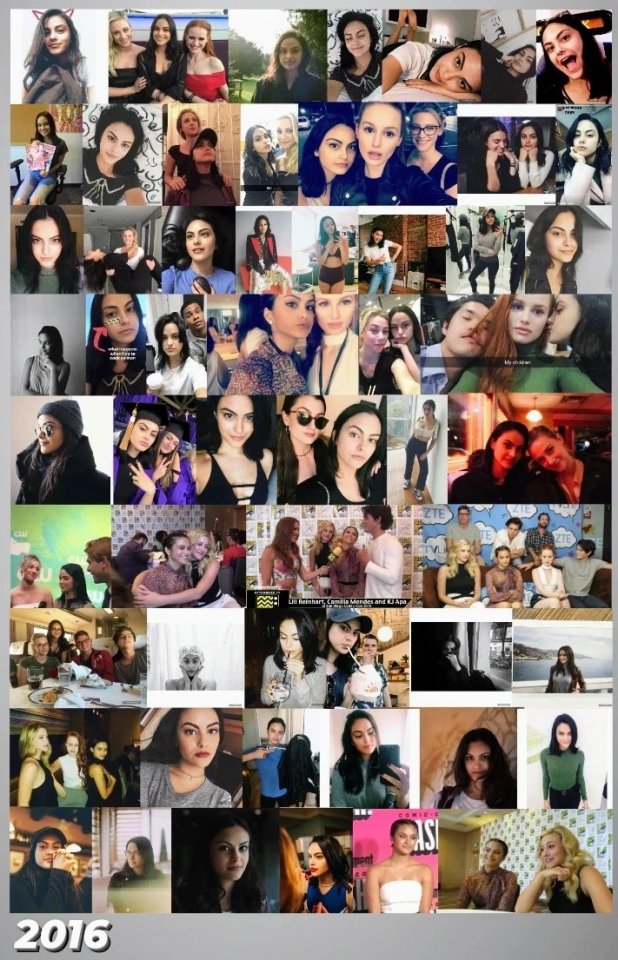
#camilamendesstyle#camilamendes#photoshoots#camilamendesbeautiful#2015#2016#riverdele#veronica lodge#perosonal photos#photoshoot#publice appearance
0 notes
Text
WOW.
Scientists found an amazingly well-preserved village from 3,000 years ago
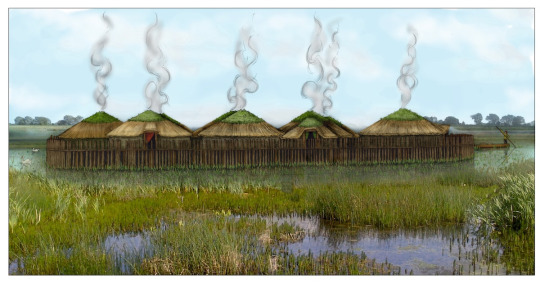
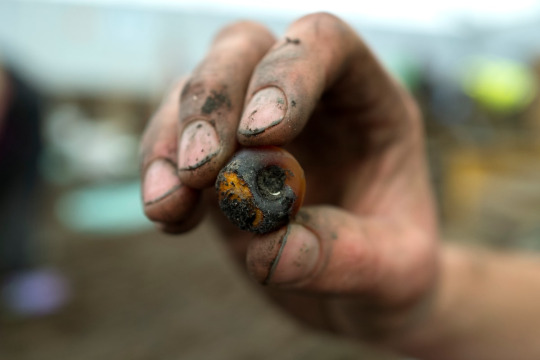
Text below, in case article access dries up:
LONDON — A half-eaten bowl of porridge complete with wooden spoon, communal rubbish bins, and a decorative necklace made with amber and glass beads are just a handful of the extraordinarily well-preserved remnants of a late Bronze Age hamlet unearthed in eastern England that’s been dubbed “Britain’s Pompeii” and a “time capsule” into village life almost 3,000 years ago.
The findings from the site, excavated in 2015 to 2016, are now the subject of two reports, complete with previously unseen photos, published this week by University of Cambridge archaeologists, who said they cast light onto the “cosy domesticity” of ancient settlement life.
“It might be the best prehistoric settlement that we’ve found in Britain,” Mark Knight, the excavation director and a co-author of the reports, said in an interviewThursday. “We took the roofs off and inside was pretty much the contents,” he said. “It’s so comprehensive and so coherent.”
The reason for the rare preservation: disaster.
The settlement, thought to have originally consisted of several large roundhouses made of wood and constructed on stilts above a slow-moving river, was engulfed by a fire less than a year after being built.
During the blaze, the buildings and much of their contents collapsed into a muddy river below that “cushioned the scorched remains where they fell,” the university said of the findings. This combination of charring from the fire and waterlogging led to “exceptional preservation,” the researchers found.
“Because of the nature of the settlement, that it was burned down and its abandonment unplanned, everything was captured,” Knight added.
“As we excavated it, there was that feeling that we were picking over someone else’s tragedy,” he said of the eerie site in the swampy fenland of East Anglia. “I don’t think we could smell the fire but the amount of ash around us — it felt close.”
Researchers said they eventually unearthed four large wooden roundhouses and an entranceway structure, but the original settlement was probably “twice as big.”
The site at Must Farm dates to about 850 B.C., eight centuries before Romans came to Britain. Archaeologists have been shocked at “just how clear the picture is” of late Bronze Age life based on the level of detail uncovered, Knight said.
The findings also showed that the communities lived “a way of life that was more sophisticated than we could have imagined,” Duncan Wilson, head of Historic England, the public body responsible for preserving England’s historic environment, said in a statement.
The findings unearthed include a stack of spears, possibly for hunting or defense; a decorative necklace “with beads from as far away as Denmark and Iran”; clothes of fine flax linen; and a female adult skull rendered smooth, “perhaps a memento of a lost loved one,” the research found.
The inhabitants’ diet was also rich and varied, including boar, pike and bream, along with wheat and barley.
A pottery bowl with the finger marks of its maker in the clay was also unearthed, researchers said, still containing its final meal — “a wheat-grain porridge mixed with animal fats” — with a wooden spatula resting inside the bowl.
“It appears the occupants saved their meat juices to use as toppings for porridge,” project archaeologist Chris Wakefield said in the university’s news release. “Chemical analyses of the bowls and jars showed traces of honey along with ruminant meats such as deer, suggesting these ingredients were combined to create a form of prehistoric honey-glazed venison,” he added.
Skulls of dogs — probably kept as pets and to help with hunting — were also uncovered, and the dogs’ fossilized feces showed they fed on scraps from their owners’ meals, the research found.
The buildings, some connected by walkways, may have had up to 60 people living there all together, Knight said, along with animals.
Although no intact sets of human remains were found at the site, indicating that the inhabitants probably fled the fire safely, several sheep bones were found burned indoors. “Skeletal remains showed the lambs were three to six months old, suggesting the settlement was destroyed sometime in late summer or early autumn,” according to the university’s news release.
Ceramic and wooden vessels including tiny cups, bowls and large storage jars were also found. Some pots were even designed to nest, stacked inside one another, Knight said — evidence of an interest in aesthetics as well as practicality.
A lot of similar items were found replicated in each home, Knight added, painting the picture of completely independent homesteads for each family unit rather than distinct buildings for shared tasks — much like we live today.
Household inventories often included metal tools, loom weights, sickles for crop harvesting, axes and even handheld razors for cutting hair.
The roundhouses — one of which had almost 50 square meters (nearly 540 square feet) of floor space — had hearths and insulated straw and clay roofs. Some featured activity zones for cooking, sleeping and working akin to modern-day rooms.
The Must Farm settlement has produced the largest collection of everyday Bronze Age artifacts ever discovered in the United Kingdom, according to Historic England, which partly funded the 1.1 million pound ($1.4 million) excavation project.
The public body labeled the site a “time capsule,” including almost 200 wooden artifacts, over 150 fiber and textile items, 128 pottery vessels and more than 90 pieces of metalwork. Some items will go on display at the nearby Peterborough Museum next month.
Archaeologists never found a “smoking gun” cause for the fire, Knight said. Instead, they suspect it was either an attack from “outside forces,” which may explain why the inhabitants never returned to collect their possessions from the debris, or an accidental blaze that spread rapidly across the tightly nestled homes.
“Probably all that was left was the people and what they were wearing; everything else was left behind,” Knight said of the fire.
But the preservation has left a window for people to look back through in the future. “You could almost see and smell their world,” he said.
“The only thing that was missing was the inhabitants,” Knight added. “And yet … I think they were there — you certainly got glimpses.”
2K notes
·
View notes
Text

---
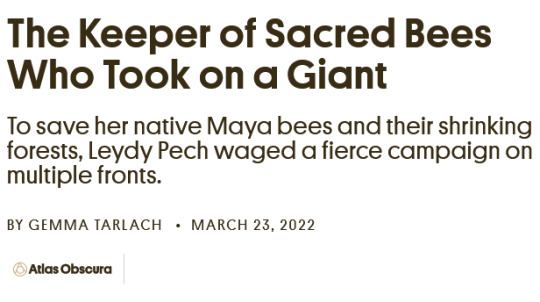


For the Maya, the honey bee is more than an insect. For millennia, the tiny, stingless species Melipona beecheii -- much smaller than Apis mellifera, the European honey bee -- has been revered in the Maya homeland in what is now Central America. Honey made by the animal the Maya call Xunan kab has long been used in a sacred drink, and as medicine to treat a whole host of ailments, from fevers to animal bites. The god of bees appears in relief on the walls of the imposing seacliff fortress of Tulum, the sprawling inland complex of Cobá, and at other ancient sites.
Today, in small, open-sided, thatched-roof structures deep in the tropical forests of Mexico’s Yucatán Peninsula, traditional beekeepers still tend to Xunan kab colonies. The bees emerge from narrow openings in their hollow log homes each morning to forage for pollen and nectar among the lush forest flowers and, increasingly, the cultivated crops beyond the forests’ shrinking borders. And that is where the sacred bee of the Maya gets into trouble.
---
In 2012, the Mexican government granted permission to Monsanto to plant genetically modified soybeans in Campeche and other states on the peninsula without first consulting local communities. The soybeans are engineered to withstand high doses of the controversial weedkiller Roundup; multiple studies have shown exposure to its main ingredient, glyphosate, negatively impacts bees, including by impairing behavior and changing the composition of the animals’ gut microbiome. Though soy is self-pollinating and doesn’t rely on insects, bees do visit the plants while foraging, collecting nectar and pollen as they go. Soon, Maya beekeepers found their bees disoriented and dying in high numbers. And Leydy Pech found her voice.
A traditional Maya beekeeper from the small Campeche city of Hopelchén, Pech had long advocated for sustainable agriculture and the integration of Indigenous knowledge into modern practice. But the new threat to her Xunan kab stirred her to action as never before. She led an assault on the Monsanto program on multiple fronts: legal, academic, and public outrage, including staging protests at ancient Maya sites. The crux of the legal argument by Pech and her allies was that the government had violated its own law by failing to consult with Indigenous communities before granting the permit to Monsanto. In 2015, Mexico’s Supreme Court unanimously agreed. Two years later, the government revoked the permit to plant the crops.
---
As Pech saw it, the fight was not simply about protecting the sacred bee. The campaign was to protect entire ecosystems, the communities that rely on them, and a way of life increasingly threatened by the rise of industrial agriculture, climate change, and deforestation.
“Bees depend on the plants in the forest to produce honey,” she told the public radio program Living on Earth in 2021. “So, less forest means less honey [...]. Struggles like these are long and generational. [...] ”
---
Headline, images, captions, and all text by: Gemma Tarlach. “The Keeper of Sacred Bees Who Took on a Giant.” Atlas Obscura. 23 March 2022. [The first image in this post was not included with Atlas Obscura’s article, but was added by me. Photo by The Goldman Environmental Prize, from “The Ladies of Honey: Protecting Bees and Preserving Tradition,” published online in May 2021. With caption added by me.]
4K notes
·
View notes
Text
NOVEMBER 19 : The Full Story 📝
oh well sort of, cause this is what is known and shared publicly with tons of filling in the blanks by cpfs. someone made a side by side incidents during this day and time for the past years 2017 to now 2023 and it’s good to see it all laid out. it’s hilarious to see the realization among turtles that we could be wrong about their anniversary date. for years, we always talked about the month of June but now, November is making a great argument 😂

( these freakin masterminds are so naughty! I swear!!! 🤣🤣🤣 )
source of the compilation i’m using to outline is 圣衣雪琳 cause they perfectly summed up the key points very well. I already talked about some of these in my previous post but this is for the “11/19 lore” exclusively and so we can expand on other years.
I’m a sucker for timelines so let’s go 💪🏼
2017: At this time, they already know of each other and depending on who you ask might have already been low key stalking the other. LOL. WYB’s was about Just Dance and ZZ is a selfie and hotpot ; the latter post about going home.

I don’t think that this holds much significance in terms of an actual relationship and stuff happening behind the scenes. However, it feels like fate that they both posted on this day even without that significance being there. We cpfs love to talk about how they are fated and certain things, no matter how mundane, turned out to be a piece that completed the puzzle. There is some push back with some turtles saying this shouldn’t be included cause it seems like the start of this 11/19 is 2018 but again, just leaving this here. I could probably add 2015/2016 if we really wanna back track lol
2018: THIS IS THE KEY CPN IN ALL OF THIS. I have already explained it here. The infamous Japan trip. How both of them seemingly making references to their post from this year vs today (2023) especially XZ who even posted on the same time. There are so many rumors about this timeline, even going as far as saying the next day, they started living together. How this was WYB saying it’s WYB, not LWJ. So the relationship they have now is not between fictional characters but the real one.

I’m eating this candy whole. No one can tell me otherwise. I’m sold 🤣🤣🤣
Have we been wrong? did they officially become together 11/19/2018. Some are even pointing out that one of GG’s photos shared today appears to be him traveling back from IM to Beijing.

and who is in Beijing? His home. Yibo. 🏡
We love to think about them sharing photos to each other and i’m imagining this is ZZ sending something similar to WYB and saying that he is on his way back.
2019: Bazaar video was released, it’s message being a favorite among BXGs. Going by the assumption that this is their anniversary of sorts, it makes sense to have a message like that to be delivered.
how he met his love in a dream ( presumably that summer and playing wwx opposite wyb’s lwj ) and when he woke up, his love is still there. meaning even in reality, he still feels the same. no. it was not scripted, the one who shot it said it was xz’s answer and he was shocked too.
youtube
They posted some work related stuff on that day, with WYB’s being audi’s. the part of the caption we are clowning about is : Don’t blame me for not reminding you. Which in the original post and context is about the benefits you will get if you buy an Audi. but in cpn speak it could mean that ZZ probably forget, but he actually didn’t cause that bazaar love confession was clear.

2020: I already talked in detail over here #2 with was going on at the time.
It’s also the start of the whole Thursday is a good day to see you, in reference to WYB’s vogue post. Then it snowballed into a whole CPN of it’s own.
I forgot to add one important thing tho, around this time 11/18 there schedules were public and both are supposed to go back to Beijing. WYB was from Hangzhou and ZZ was from Nanjing. The incident of WYB changing his flight 3x so he can go back to Beijing is this time 11/18. We clowned that he was so eager to be in the same city with ZZ but with what we think now, it could be he wanted them to be together badly because it’s their anniversary the next day 11/19. 🤯
2021: Both of them posting a Douyin video that involves changing clothes. Which is a very common transition trend on the app but seeing it done on the same day was a treat and unusual. GG’s was posted 11/17 and WYB was 11/19.

I wanna remind people too that this is the same month we got the mysterious “voices” both in Shenzhen Vlog ( his husband wang yibo ) and talks of ZZ being at the Luoyang press conference filming. The same month the whole Ximalaya CPN started too. So they were definitely “acting up”.
2022: No actual posts but a parallel. 11/17, Guangdian appeared on the itunes chart because of fan’s effort. 11/18, WYB released a song ( government related ) called Light Chaser. So spotlight = light chaser has similar element and theme of light. Then on 11/20 WYB’s shared a douyin with 👀.
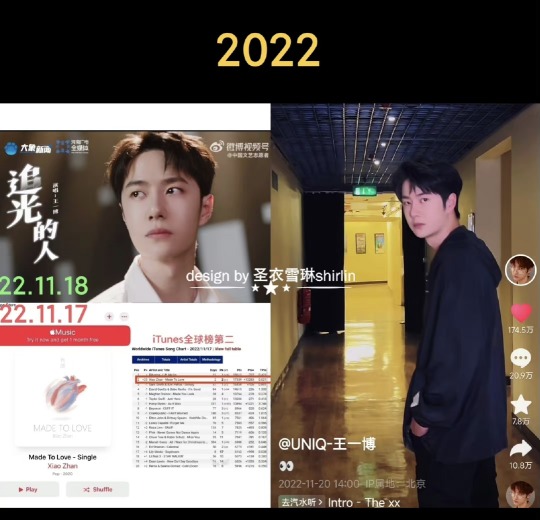
2023: Probably making up for how quiet last year was, they decided to give us a big hint/s of what 11/19 is all about. 😂😂😂
This is all fake and cpn talk. I do enjoy when candies go years back! This journey of trying to piece things together is a bxg’s strength so we’re really thriving today— with all the possibly unrelated events we have managed to stitch together into this! 🙃
#bjyx#yizhan#there is no science here i’m just clowning like i always do#Youtube#i love watching all of us collectively lose our minds over this lol#ok i shall sleep now
201 notes
·
View notes
Note
Could u write a princess of Monaco and Arthur lecrelc , I see this being written so much for Charles and none for Arthur
thank you :)
Queen of Monaco (Arthur Leclerc X Reader)
Fandom: RPF/Formula 2/3
Requested: Clearly (haha we have the same mind bc I was already drafting this before you requested it)
Warnings: death of parents and brother (mentioned), google translate, the Monaco curse is affecting Arthur now and that's a warning itself bro. I am in denial about the race results today, so I made this to make me happy.
Pronouns: She/Her
W.C. 4108
Summary: The beginning of the relationship between Arthur Leclerc and the Queen of Monaco.
As always, my requests are OPEN
MASTERLIST // HITLIST
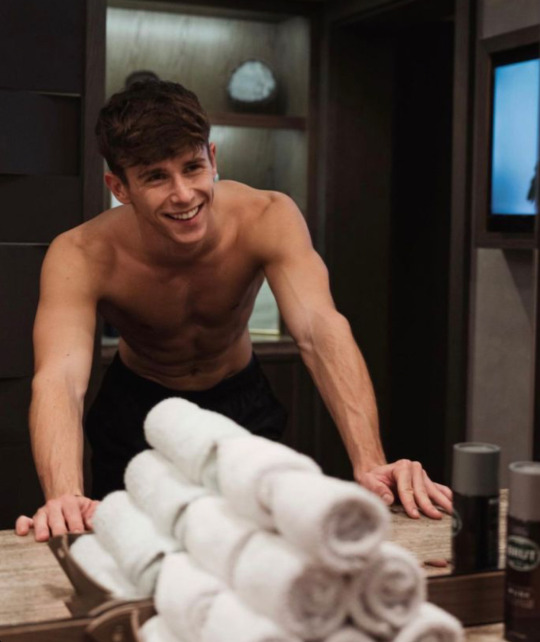
~~(@/Arthur's insta from January 29, 2023)
It was a normal day in Monaco. It was not a race week, and there were no pressing matters to attend. I had just returned to Monaco last week after attending the Massachusetts Institute of Technology in the United States, but I just received my Bachelor's degree and wanted to return home before starting my Master's. I decided to take my first semester online, so I could go home and spend time with my family.
When I got back, my parents urgently began to train me for the throne even though I was not next in line. Despite having an older brother who was scheduled to become the King of Monaco after my parents, he had to serve in the military before he could move forward. They wanted to have me prepare in the event that something happened to him in battle.
I had never really been in the public eye due to my brother being the next in line. He was always the one attending meetings, trainings, and keeping up appearances. I was free to do as I pleased for the most part, but in 2015, they sent me to a training school in London. It taught the basics of monarchy and the foundations of how to run a country. It was the same one my brother attended. Even in my spare time, I found my passion in mechanical engineering and aerodynamics. It took some persuasion, but my parents allowed me to attend MIT after my graduation because they were so sure that I would not be needed. My brother is in the final stages of the training. All he needed to do was finish the last few months of military training, and then he would be crowned.
Upon my return, I learned that my mother was ill, so they wanted to get my brother crowned quickly. However, they practically had to start from square one since I was provided very minimal training in London. My father was furious, not at me, but at the situation they had been placed in. They told me the best thing I could do while they prepare the training is to memorize Monaco as it had been nearly seven years since I had been here.
I was walking down the pier, looking at all of the little shops that lined the pavement and the boats at the dock. There was a small ice cream shop, a couple of clothing stores, a few restaurants, and a salon. I realized that I had not had my hair professionally done since before college, so I thought it would be a good idea to treat myself.
“Bonjour, comment puis-je vou aider? (Hello, how can I help you?)” A lady greeted me as I stepped through the door. It was a small shop, no one else was in there, but it was cute and welcoming other than the fact that I could not remember French for the life of me.
“I’m sorry, my French is no good,” I replied sheepishly, fully prepared to leave, but the woman stopped me.
“Oh, not a problem, dear. My name is Pascale, what can I help you with?” She smiled, kindly, leading me over to one of the chairs.
“Well, I haven’t gotten my hair done in almost four years, so I think it’s time to freshen up,” I explained.
“Oh perfect, I can most certainly help with that,” She laughed, placing an apron around my shoulders. “Are you thinking about dye, highlights, trim, cutting…” She started listing more but I couldn't follow along with all of the terminology.
“Uh, probably just a trim,” I chuckled, “my parents would kill me if I showed up with short, dyed hair.”
“Not a problem at all,” she grinned and began cutting the ends, little by little, as we made small conversations. “What do you do for work?”
“I actually don’t have a job at the moment,” technically, “but I just came back from the United States. I was at MIT for the last four years, getting my bachelors in mechanical engineering and aerodynamics, and before that, I attended boarding school in London.”
“That’s interesting,” she hummed, “Sounds like you like Formula 1?”
“Not so much the races. I just like the cars,” I laughed in response. “I like learning what could make the cars better, faster, stronger, and safer, but the actual races aren't something for me. I watched one too many accidents end badly, so I can never find enjoyment in it anymore. The last race I went to was in Japan, and I lost my best friend.”
“Oh, I’m sorry about that, dear. If you ever need to talk, I’m here,” Pascale consoled. I looked at her confused through the mirror. She just set the scissors down just as her phone got a notification. She pulled out her phone and opened the notification. It was a text message with a picture. “That is my son, Charles, and his best friend, Pierre. They’re in Formula 1. They went out karting today, and he just sent me this.”
“Oh, Charles Leclerc and Pierre Gasly! I know them,” I recognized immediately. “That’s your son?”
“Yeah, he’s always had this passion for driving, so I’m proud to see him living his dreams,” She smiled, putting her phone back, and resumed cutting my hair.
“Well, I’m proud of him too, and I don’t even know him.” I laughed.
“Maybe, if you’d ever change your mind, you could join us for a race,” Pascale offered. “Only if you’re up for it.”
“I’ll have to see, but probably not,” I declined nervously.
“It’s not a problem, dear,” She said, patting my shoulders. “But you are all done. How do you like it?”
My hair was shorter by a couple of inches, but it felt so much lighter and healthier than it did earlier today. “I love it so much, Pascale! Thank you so much! How much do I owe you?”
“Nothing, just promise you’ll think about joining us? It would do you some good to get to know more people, and you could even check out the cars before the race! If you’re not comfortable staying for the race, you can always leave. Just promise you’ll think about it before immediately rejecting it?” She pleaded.
“Fine, I’ll think about it,” I laughed, “but only because you were so persuasive!”
–
The next time I was out in the streets was nearly a week later. My time was being packed with different trainings and attending private events, but nothing public yet so as to not stir up controversy. I decided to go to a local bakery and get some tea and some food. The food in the castle just did not compare to my favorite bakery. Not by a long shot.
When I walked in, there were not a lot of people in there. It was a small shop with only two tables and a counter. There was the person behind the counter, Ella, and three people at the tables. One sat by himself and the other two occupied the second table. I approached Ella and ordered a tea and sandwich. She said she would bring it right over once it was finished, and I approached the man sitting by himself.
“Bonjour,” I greeted, my French was slowly coming back to me but not enough to carry a full conversation. The man looked up from his phone at me. He had blue eyes and shady blonde hair. He had airpods in and took one out as I approached the table. “My name is Y/n. Would it be alright if I sit with you? The other table is filled.”
“Of course,” He responded immediately, moving the bag that was hanging on the other chair to the floor. “I’m Arthur.”
“Nice to meet you, Arthur. Thank you for letting me sit with you,” I laughed, taking the seat that he pulled out for me. “I really appreciate that.”
“It’s my pleasure,” He chuckled along, “It was just empty anyway.”
~
That was the start of an inseparable bond. It was strange having someone so close again because even though I had some friends in school, they were never as close as Arthur was. For the first couple of months, any time that was not filled with training was spent with each other. Whether it be chilling in his apartment, driving around Monaco, boat rides, and random trips around France and Italy, we were content with doing random acts of entertainment. It didn’t take long before he asked me to be his girlfriend.
One thing we knew would be difficult is the time commitments. With his recent change from Formula 3 to Formula 2 and more royal training for me, we knew it was going to be more time-consuming. That didn’t stop us, however. Tuesdays were the most random day of the week, but neither of us had any responsibilities.
One day in particular, the day before he was set to go to Australia, we were at his apartment, and I was helping him pack since he *conveniently* forgot. We had gone to get smoothies and acai bowls earlier that morning before heading to his apartment. Then, after we ate, we put on some music as background noise while we packed and conversed back and forth.
“Would you ever come to a race with me?” He asked as he pulled a couple of shirts out of his closet. “I know you didn’t have a good experience at the last one, but would you be willing to give it another time?”
“I don’t know, A. I get anxiety just knowing you’re racing,” I explained. Moving to fold the shirts he’s pulling out.
“That sound like an improvement!” He laughed, jumping over and wrapping his arms around my shoulders as I put the folded clothes in the suitcase. “When we first started talking, you said no immediately. Now, you’re saying you don’t know.”
“What can I say?” I leaned back into his embrace, “You are pretty persuasive.”
“What are the chances of you coming to the Monaco Grand Prix with me?”
“The odds are in your favor since I don’t go anywhere,” I laughed in response. He turned me around in his arms. He was pouting and had his head tilted slightly. “No, don’t do the puppy face. You know I can’t say no to that face.”
“Please?”
With a heavy sigh and a joking eye roll, I caved. I was about to vocalize my decision, but my phone started ringing. This time, my sigh was out of annoyance after seeing it was from Mila, my personal guard and trainer. “I need to answer that, but yes, I promise to go to the Monaco Grand Prix with you.”
“Of course,” He exclaimed, kissing me all over my face. “I will take care of everything. You go take the call, and I’ll finish packing in here.”
With a small smile, I walked out of his bedroom to the living room and stepped out onto the balcony before answering the phone. “Hi, Mila. What did I forget?”
“Nothing, but are you near the palace?” She responded. Just the tone of her voice made me nervous.
“Not really, I’m about 20 minutes away. Do I need to head back?”
“Yes, let me know when you get here.” And with that, she hung up. I walked back in to see Arthur with his suitcase fully packed by the door.
“I need to head home,” I started. “Something’s not right.”
“That’s fine,” He reassured, pulling me into a hug. “I’ll need to head out for my flight soon anyway, so I’ll walk you to your car.”
During the drive back, my mind wandered. Was there a meeting I missed? I couldn’t remember having anything scheduled on a Tuesday. Most meetings were on Mondays or Wednesdays and policy training sessions were Thursdays and Fridays. Maybe there was a last-minute meeting.
Pulling through the gates, I texted Mila once I parked in our car park, and a few guards were waiting for me. “Hi, what did I miss?”
“Y/n, we need to talk,” one of the guards, Chris, said, and right then, I knew things were worse than I thought. We walked through the corridors to reach one of the meeting rooms, but the only person in there was Mila. The guards immediately turned around and left the room.
“Mila-”
“Have a seat,” She cut me off, gesturing to the seat next to her. I took it hesitantly as I looked at her skeptically. “So, I’m not going to beat around the bush with this. As you know, your mother, the queen, was sick.”
“I assume she died then? That’s what this was for?” I cut her short. However, there was something on her face that said she wasn’t finished. “Okay, I’ll let you continue.”
She shook her head dismissively, “No, it’s fine, but you’re right. She passed away early this morning.”
“So my brother will be crowned when he comes back?”
“That’s the next news,” Mila paused. I encouraged her to just rip the bandaid off because I was getting impatient. “Your father went to the base to get your brother, but there was an explosion. There was a gas leak, and somehow the building they were in exploded. We’re still waiting on the details.”
“Wait, so my entire family…” I trailed off, but she knew where I was going. She just nodded solemnly as she pulled me into her side. “So that means…”
“It means you are to be the queen.”
~
Third POV
Ever since the Melbourne Grand Prix, Arthur has been talking about how his girlfriend was going to join him on the paddock for the Monaco Grand Prix. To say that his friends and brothers teased him would be putting it lightly. Any chance they could, they asked questions about this “girlfriend” of his that they had never heard of, and Arthur was willing to spill all of the details. On the Thursday before the Monaco Grand Prix when he was driving to the track with Charles, he accidentally let it slip that he actually had not heard from her recently. He asked Charles to check his phone to see if she had texted him recently.
“Wait, you haven't heard from her in over a month and you’re not at all worried?” Charles asked, very concerned for someone he’s never met.
“No, we’ve definitely texted recently,” Arthur responded in disbelief. When they pulled up to a red light, Charles showed him that the last message from her was April 1. “No, we’ve definitely talked.”
“Here, pull over. We’ll switch, so you can call her, and I’ll drive us the rest of the way to the track,” Charles said, already getting out of the car as soon as they were on the shoulder. He immediately dialed her number, and after a few rings, it went to voicemail. He thought about leaving her a voice message, but she was already calling him back before he could start.
“Hey, traffic is hideous, but I’m almost there,” She started her explanation. She was sitting in the backseat with a couple of guards, and Mila as her driver took them to the track. “Are you already there?”
“No, we’re not there yet,” he laughed. “Charles and I are still stuck in traffic, but we noticed that I hadn’t messaged you since the Australian Grand Prix. Thought I would call to see if you were still coming.” Charles was half listening to the conversation, but he was smiling to himself, hearing how lovestruck his younger brother sounded.
“Oh, definitely,” She chuckled. Mila nudged the girl with a knowing grin. “I’ve just been insanely busy recently, but I promised. On the bright side, I finished my training!”
“No way, I’m so proud of you, ma chéri!” Arthur cheered. Charles was a little confused as he pulled into the track, but let it go, knowing Arthur would explain it later. “Does that mean there will be a ceremony or something?”
“You could call it a ceremony, yes,” She giggled. She noticed that they were only a few blocks away from the car park of the track, so she turned her phone away toward her shoulder as she directed a question to Mila, “Could I jump out and meet up with Arthur before the race? I promise I’ll be careful, and I’ll be in the box before it starts.” Mila turned to discuss it with one of the guards who was entirely against it. “Please, I won’t leave Arthur’s side, and you know he’s trustworthy.”
“I won’t let her out of my sight, Mila!” Arthur’s voice could be heard through the phone despite it not being on speaker. She gestured to the phone at her shoulder as Mila tried to reason with the guard.
“I’ll go with you,” Mila said as she started collecting their passes and jumping out of the car that was stopped in the traffic going into the parking lot. Y/n immediately climbed out of the back, pulling her phone back up to her ear.
“Alright, Arthur, where do you want us to meet you?”
~~
First POV
“You seem to have gotten shorter since Melbourne,” I laughed as I ran into Arthur’s arms from where he was waiting at the Dams garage.
“You’re wearing heels,” he pointed out after we pulled away. “What are you and what have you done with my girlfriend?”
“You say that like you don’t like me in heels,” I teased back.
“Ok, lovebirds,” Mila pulled our attention away from each other, “I am going to head up to our seats. Don’t tell anyone I left.”
“Your secret’s safe with me. Thank you, Mila,” I responded as she started walking away.
“You have seats?” Arthur asked.
“Yeah, I didn’t want to rely on you for the passes for Mila, so she bought us hospitality seats,” I explain. It wasn’t the whole truth, but I could not just tell him that in the open. “Is it possible to talk somewhere away from the cameras?”
“You’re not breaking up with me, right?” He immediately jumped to conclusions.
“No, no, no, no,” I quickly shut down. “Je t’aime trop pour partir, mon amour. I just want to tell you something. (I love you too much to leave, my love)”
“Je t’aime, ma belle, (I love you, my beauty)” He whispered, pulling me in for a light kiss before leading me back towards the driver’s room he shares with Ayumu. “Make yourself comfortable.”
I took a seat on one of the beanbags as Arthur sat right next to me. I took a deep breath before deciding the best way to tell him was just to say it fast. “Arthur, I need to tell you about my family.”
“Are you trying to have me meet your family already? You could meet my brothers and maman today if you want,” He rambled.
“I can meet them, but you won’t be able to meet my family. That day you left for Australia was the day I found out they passed away.” I paused looking at his reactions. He looked sorrowful as he grasped my hands and ran his thumbs across the backs of my hands. “Maman had an illness, and papa went to get my brother from the base.”
“Your brother’s in the military?” He asked.
“Was,” I answered. He looked even more confused at that before I continued. “He was serving in the military as his last stage of training. Kind of like my trainings, he had to serve in the military.”
“What kind of training did you need to do? Was this part of your degree or something?”
“No, that’s the big secret I haven’t been able to tell you,” I whispered, putting my head down as I felt guilty for not explaining this sooner.
“Anything you have to say, I will accept you either way,” He reassured me as he pulled me into his chest and kissed my head. “I understand that you have your reasons for hiding some things, so whatever this is, it is not going to stop me from loving you.”
“What if it is complex with more spotlight than you already have?” I asked, throwing my head to rest on his shoulder and looking into his blue eyes. “What if it’s a big change?”
“When we go public, it will be a big change, but I’m willing to do anything for you, ma princesse.”
“Reine, (Queen)” I whispered.
“Quoi? (What)” He responded just as fast.
“What if I told you my parents were the king and queen of Monaco? And my older brother was the prince of Monaco? And now that they’re gone, I will be the queen of Monaco? What would you do?”
He went silent for a few seconds before whispering, “Are you serious?” My silence was enough of an answer for him to jump up, pulling me with him as he starts laughing and spinning us in circles. He set me down after a couple of spins before holding me at arm's length, “I would completely understand. I mean you probably didn’t plan on taking the throne because of your brother, and you’d just come back from studying. I only tell people who need to know, and when we met, I wasn’t someone who needed to know. We haven't talked since you found out, so I could never be upset with something like that.”
“But now, if we tell people, you will be heavily scrutinized as people will see you as a potential king,” I signed, happy to know he isn’t upset with me, but still wanting him to see all sides before completely agreeing to move forward. “You’d have more on your list.”
“The only question I would have is if it would interfere with racing,” He turned serious.
“I would never let them keep you from your passions,” I laughed. “They have to respect it by order of the queen.”
“Well, then I would see no issues against continuing to be by your side, ma reine,” he chuckled with a mocking bow.
“Merci mon beau prince, (Thank you my handsome prince)” I mocked back, “now by order of the queen, go win this race.”
~~
“And Arthur Leclerc passes Fredrik Vesti in the final turn of the race,” Crofty shouted over the radio during the final lap of the race. I was up in the hospitality seats with Mila and the guards but headed down to the pitlane a couple of laps before since I was going to be presenting the trophies. I was standing at the pit wall with Charles, Lorenzo, and Pascale, who I met (again) just before the race. “The Monaco Curse is broken for Arthur Leclerc as he wins his first Monaco Grand Prix!”
I left the pit wall to meet everyone at the podium and stopped to meet up with Mila on my way over. She and the guards escorted me through the crowds. “I’ll tell you now, one of you will need to tell Arthur not to out our relationship when I give him his trophy.”
At the podium, I stood behind the steps as Alice announces the winners. “In third place, we have Théo Pourchaire! In second place, we have Frederik Vesti! And in first place, breaking the Monaco Curse, the home favorite, Arthur Leclerc! Presenting the trophies today is the future Queen of Monaco, Y/n.”
“I’m proud of you,” I said to Arthur as I handed him the trophy.
“Merci, now if only Charles could win,” He joked, taking the trophy and posing with it.
“I’ll tell him you’re talking crap about him,” I teased back, moving away to grab the next trophy for Dams. I handed them all out and expressed my congratulations to the other two drivers before posing for the picture and immediately ducking back as I knew Arthur would try to spray me. I walked down the stairs to meet up with Charles before he heads back to Ferrari for his own race. “Arthur’s talking shit about you. You better win.”
“I’m starting sixth, so we have hope,” Charles responded as he rolled his eyes.
“Just don’t box for hards at the last lap again and you’ll be fine,” I laughed as if it were really that simple.
“Maybe I broke the curse for both of us or maybe I just had some good luck today,” Arthur said, coming up behind us and throwing his arm around my shoulders.
“Oh yeah, what good luck did you have?” Charles teased, punching Arthur into me.
“Maybe just the future queen of Monaco.”
~~~~~
© BAD268 2023. DO NOT REPOST WITHOUT PERMISSION.
#arthur leclerc x reader#arthur leclerc#formula 2#formula 1#charles leclerc x reader#bad268#ship268#thing268#arthur x reader#f2#f1#dams racing
402 notes
·
View notes
Text
Gaza's Gethsemane
Today is Maundy Thursday, when Christians remember Jesus’s Last Supper, his final meal with his closest friends before his arrest and execution by the Roman Empire.
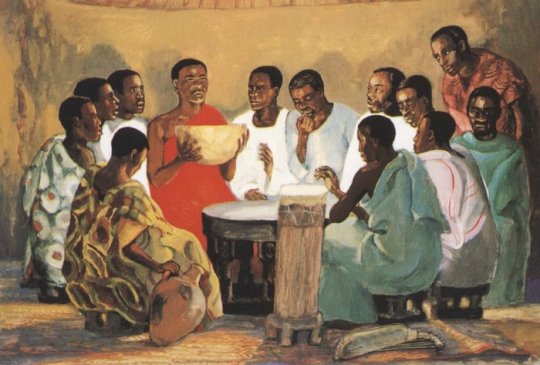
Meanwhile, right now, in Jesus’ own homeland, millions suffer starvation and terror, displacement and death under Western-funded Israeli colonialism and continued military assault. Israel blocks food from reaching them, leaving Palestinians in fear that any "supper" they can scrounge up might be their last.

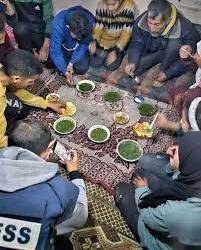
After their meal, Jesus led his friends into the Garden of Gethsemane, where he prayed in anguish, fearing all he was about to endure: criminalization, torture, and a painful public death.

Jesus begs his friends to “stay awake” as he wrestles — just to be present, to make him feel a little less alone. How do we respond to Jesus’ plea by “staying awake” to Palestine’s current agony?
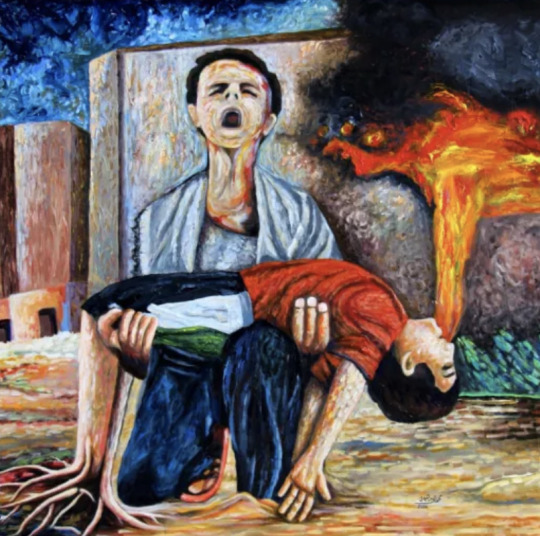
"Cry" (2016) by Mohammed Almadhoun.
That question also leads me to ponder another: how does God join Palestinians in their agony? Where is God in their suffering?
Palestinian Christian Mitri Raheb seeks to answer this question of where God is in his 2015 book Faith in the Face of Empire.
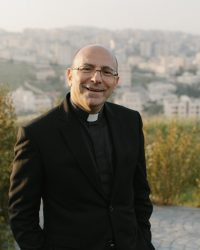

Raheb looks at the history of the Palestinian region, from ancient times to today, as a long chain of different empires — from the Assyrians to the Romans, Ottomans to Western-funded modern Israel.
He says that this long history of occupation is what gave Palestinians the ability to notice God where those in power do not: among the powerless. It is this revelation, Raheb declares, that has empowered Palestinians — Jewish, Christian, and Muslim — to survive and resist Empire again and again.
Raheb writes about how in ancient times, the divine was made
“...visible and omnipresent in the empire with shrines and temples that represented not only his glory but also that of the empire. God’s omnipotence and that of the empire were almost interchangeable. He was a victorious God, a fitting deity for a victorious empire.
At the other end of the spectrum there was the God of the people of Palestine, whose tiny territory resembled a corridor in Middle Eastern geography. ...This God was a loser. He lost almost all wars, and his people were forced to pay the price of those defeats. In short, this God did not appear to be up to the challenge of the various empires. His people in Palestine were forced to hear the mocking voices of their neighbors who taunted them, 'Where is your God?' (Ps 42: 3, 10).
The revelation the people of Palestine received was the ability to spot God where no one else was able to see him. When his people were driven as slaves into Babylon, they witnessed him accompanying them. When his capital, Jerusalem, was destroyed and his temple plundered, they saw him there. When his people were defeated, he was also present. The salient feature of this God was that he didn’t run away when his people faced their destiny but remained with them, showing solidarity and choosing to share their destiny.
Consequently and ultimately, Jesus revealed this God on the cross, in a situation of terrible agony and pain, when he was brutally crushed by the empire and hung like a rebellious freedom fighter. The people of Palestine could then say with great certainty [that their God] ‘in every respect has been tested as we are’ (Heb 4:15).
For the people of Palestine this meant that defeat in the face of the empire was not an ultimate defeat. It meant that after the country was devastated by the Babylonians, when everything seemed to be lost, a new beginning was possible. Even when the dwelling place of God was destroyed, God survived that destruction, developing in response a dwelling that was indestructible. And when Jesus cried on the cross, “My God, my God, why have you forsaken me?” (Mk 15:34), that soul-rending plea was just the prelude to the resurrection…”
It is this revelation that God sides against empire, Raheb continues, that keeps the Palestinian spirit alive through horrible oppression. Though the world may call such faith foolish — how can you believe God is with you and that God will have the final say, when all evidence points to your abandonment and defeat? — it is wisdom to the oppressed. Raheb describes how this wisdom feeds Palestinian resistance, over and over across the millennia:
The art of survival and starting anew is a highly developed form of expression in Palestine, and one I see daily. People’s lives, businesses, and education are interrupted by wars and the aftermath of wars over and over again, and yet I witness people refusing to give up, taking a deep breath, and beginning again. Logically, it is foolish, and yet there is deep wisdom in such a course of action.
I’m often asked by visitors how I can keep going. Everything seems to be lost, the land “settled” by Israel, the wall suffocating Palestinian land and spirit, the world silent, and hope almost gone.”
Raheb's answer to them is that God’s presence in and among the suffering, and God’s promised resurrection, of renewal in the face of all terror and death, is what keeps him and his people going.
As we enter into these final days of Lent, I pray for hearts and minds opened to witnessing God’s solidarity with and resurrection for Palestinians suffering imperial brutality. I pray that the Palestinians will survive as they always have — “afflicted in every way, but not crushed; perplexed, but not driven to despair; persecuted, but not forsaken; struck down, but not destroyed” (2 Cor 4:8–9).
93 notes
·
View notes
Text

Writer Spotlight: Elise Hu
We recently met with Elise Hu (@elisegoeseast) to discuss her illuminating title, Flawless—Lessons in Looks and Culture from the K-Beauty Capital. Elise is a journalist, podcaster, and media start-up founder. She’s the host of TED Talks Daily and host-at-large at NPR, where she spent nearly a decade as a reporter. As an international correspondent, she has reported stories from more than a dozen countries and opened NPR’s first-ever Seoul bureau in 2015. Previously, Elise helped found The Texas Tribune, a nonprofit digital start-up, after stops at many stations as a television news reporter. Her journalism work has won the national Edward R. Murrow and duPont Columbia awards, among others. An honors graduate of the University of Missouri School of Journalism, she lives in Los Angeles.
Can you begin by telling us a little bit about how Flawless came to be and what made you want to write about K-beauty?
It’s my unfinished business from my time in Seoul. Especially in the last year I spent living in Korea, I was constantly chasing the latest geopolitical headlines (namely, North Korean leader Kim Jong Un’s big moves that year). It meant I didn’t get to delve into my nagging frustrations of feeling second-class as an Asian woman in Korea and the under-reported experiences of South Korean women at the time. They were staging record-setting women’s rights rallies during my time abroad in response to a stark gender divide in Korea. It is one of the world’s most influential countries (and the 10th largest economy) and ranks shockingly low on gender equality metrics. That imbalance really shows up in what’s expected of how women should look and behave. Flawless explores the intersection of gender politics and beauty standards.
Flawless punctuates reportage with life writing, anchoring the research within your subjective context as someone who lived in the middle of it but also had an outside eye on it. Was this a conscious decision before you began writing?
I planned to have fewer of my personal stories in the book, actually. Originally, I wanted to be embedded with South Korean women and girls who would illustrate the social issues I was investigating, but I wound up being the narrative thread because of the pandemic. The lockdowns and two years of long, mandatory quarantines in South Korea meant that traveling there and staying for a while to report and build on-the-ground relationships was nearly impossible. I also have three small children in LA, so the embedding plan was scuttled real fast.
One of the central questions the book asks of globalized society at large, corporations, and various communities is, “What is beauty for?” How has your response to this question changed while producing Flawless?
I think I’ve gotten simultaneously more optimistic and cynical about it. More cynical in that the more I researched beauty, the more I understood physical beauty as a class performance—humans have long used it to get into rooms—more power in relationships, social communities, economically, or all of the above at once. And, as a class performance, those with the most resources usually have the most access to doing the work it takes (spending the money) to look the part, which is marginalizing for everyone else and keeps lower classes in a cycle of wanting and reaching. On the flip side, I’m more optimistic about what beauty is for, in that I have learned to separate beauty from appearance: I think of beauty in the way I think about love or truth, these universal—and largely spiritual—ideas that we all seek, that feed our souls. And that’s a way to frame beauty that isn’t tied in with overt consumerism or having to modify ourselves at all.
This is your first book—has anything surprised you in the publishing or publicity process for Flawless?
I was most surprised by how much I enjoyed recording my own audiobook! I felt most in flow and joyful doing that more than anything else. Each sentence I read aloud was exactly the way I heard it in my head when I wrote it, which is such a privilege to have been able to do as an author.
Do you have a favorite reaction from a reader?
I don’t know if it’s the favorite, but recency bias is a factor—I just got a DM this week from a woman writing about how the book helped put into words so much of what she felt and experienced, despite the fact she is not ethnically Korean, or in Korea, which is the setting of most of the book. It means a lot to me that reporting or art can connect us and illuminate shared experiences…in this case, learning to be more embodied and okay with however we look.
As a writer, journalist, and mother—how did you practice self-care when juggling work commitments, social life, and the creative processes of writing and editing?
I juggled by relying on my loved ones. I don’t think self-care can exist without caring for one another, and that means asking people in our circles for help. A lot of boba dates, long walks, laughter-filled phone calls, and random weekend trips really got me through the arduous project of book writing (more painful than childbirth, emotionally speaking).
What is your writing routine like, and how did the process differ from your other reporting work? Did you pick up any habits that you’ve held on to?
My book writing routine was very meandering, whereas my broadcast reporting and writing are quite linear. I have tight deadlines for news, so it’s wham, bam, and the piece is out. With the book, I had two years to turn in a manuscript. I spent the year of lockdowns in “incubation mode,” where I consumed a lot of books, white papers, articles, and some films and podcasts, just taking in a lot of ideas to see where they might collide with each other and raise questions worth reporting on, letting them swim around in the swamp of my brain. When I was ready to write, I had a freelance editor, the indefatigable Carrie Frye, break my book outline into chunks so I could focus on smaller objectives and specific deadlines. Chunking the book so it didn’t seem like such a massive undertaking helped a lot. As for the writing, I never got to do a writer’s retreat or some idyllic cabin getaway to write. I wrote in the in-between moments—a one or two hour window when I had a break from the TED conference (which I attend every year as a TED host) or in those moments after the kids’ bedtime and before my own. One good habit I got into was getting away from my computer at midday. I’m really good about making lunch dates or going for a run to break up the monotony of staring at my screen all day long.
What’s good advice you’ve received about journalism that you would pass on to anyone just starting out?
All good reporting comes from great questions. Start with a clear question you seek to answer in your story, project, or book, and stay true to it and your quest to answer it. Once you are clear on what the thing is about, you won’t risk wandering too far from your focal point.
Thanks to Elise for answering our questions! You can follow her over at @elisegoeseast and check out her book Flawless here!
#writer spotlight#elise hu#flawless#k-beauty#beauty#beauty industry#feminism#gender politics#seoul#south korea#journalism#writing advice#reportage#flawlessthebook
239 notes
·
View notes
Text
By: Louise Perry
Published: Jun 8, 2023
When we get home from the supermarket, our two-year-old likes to assist with taking the groceries out from underneath his stroller and carrying them to the kitchen. He will pick up a carton of milk and heave it towards the fridge like an atlas stone. “Well done darling” I say to him in a pitch slightly higher than usual, “you’re being so helpful.”
Of course he isn’t actually being helpful. In fact, he’s slowing down the process of unpacking and risking an enormous milk spillage all over the kitchen floor. But my goal is encouragement and kindness – he’s only two, bless him, and that carton is awfully big and heavy.
My husband regards these exercises with more of a gentle briskness. “Thanks mate” he’ll say in his usual tone of voice, excising my white lie. In this, I’ve learnt, my husband is typical of other men. In a 2015 study led by Mark VanDam, a professor in the Speech and Hearing Sciences department at Washington State University Spokane, researchers outfitted preschoolers and their parents with recording devices to monitor social interactions over the course of a normal day. The mothers, they found:
… used higher pitch and varied their pitch more when interacting with their child than with adults. The fathers, on the other hand, did not show the same pattern, and instead talked to their children using intonation patterns more like when they talked to other adults.
As an instinctive speaker of so-called ‘motherese’ – that is, baby talk – I find that when our son mispronounces a word (‘tawtah’ for ‘water’ or ‘mulack’ for ‘milk’) I will automatically echo it back to him, while my husband will automatically respond with the correct pronunciation. These differences persist despite the fact that we share childcare almost exactly equally within our family.
It turns out we’re not alone in this sex difference, and that it may well have some adaptive purpose. "We think that maybe fathers are doing things that are conducive to their children's learning but in a different way,” writes VanDam, “the parents are complementary to their children's language learning.” Mothers speak down to children, while fathers speak to them like equals – in combination, these two kinds of stimuli promote the development of adult language.
The adoption of motherese is an instinct that, in its correct context, is both comforting and developmentally useful. But it can also, in some circumstances, be dysfunctional. And, as I have become more and more fluent in it, I have started to notice that motherese is no longer confined to the nursery or the classroom, but is now to be found also in public life. Not in its full expression – “have you got a boo-boo, honey?” – but in a more subtle form.
I heard a lot of motherese, for instance, in the responses to philosopher Kathleen Stock’s appearance this week at the Oxford Union – a political event considered significant enough to attract commentary from the Prime Minister and rolling updates on the homepages of several national newspapers.
Students at risk of being traumatised by Stock’s mild-mannered, centre-left brand of politics were ushered towards ‘welfare rooms’ offering ear plugs, bottles of water, and snacks. “The Union has made the choice to amplify a voice that actively harms trans students, trans people and the trans community at large” wrote one student politician, “we’re tired of [the Union’s] refusal to listen to the communities they hurt” insisted another. It was as if Stock was a rampaging bully on the playground, knocking other children to the ground, and her critics were leaping to the defence of the persecuted toddlers.
Witnessing the backlash against her, you’d never guess that Stock’s only sin is to offer a careful academic critique of the doctrine of gender identity – that is, the claim that one can become a member of the opposite sex (or some other identity category in between) merely by force of will. As she reiterated in her Oxford Union speech, to reject this doctrine is not to deny the humanity of trans people, but rather to balance their interests against those of other people, particularly women.
But I am by no means the first to notice an unexpected feature of the crowds that formed outside the Oxford Union this week, and indeed all of the crowds that congregate in support of trans activism (now a regular occurrence, and not just in the Anglosphere). While the occasional acts of outright aggression are overwhelmingly committed by men, the crowds in general are mostly composed of young women.
Polling reveals this to be a wider pattern. In the UK, women – and particularly young women – are far more supportive of trans activism than are their male counterparts. The same gap can be seen in US polling. The public figures who have received the most flak for their criticisms of trans activism are disproportionately women – I’m thinking not only of Kathleen Stock, but also of JK Rowling – and yet so, too, are the movement’s most devoted allies. This is, in the main, an intra-female conflict.
But if trans activism poses a threat to women’s interests – as Stock and Rowling insist that it does – then why have so many women come out in support of it? I want to propose two explanations for this seeming paradox.
Firstly, in socioeconomic terms, the women who have the most to lose from the disintegration of female-only spaces – prisoners and domestic abuse victims, for instance – are not actually the same women who are draping themselves in blue and pink flags outside the Oxford Union. This is a textbook example of what Rob Henderson has termed a ‘luxury belief’ – an idea that confers status on the rich, while causing harm to the poor.
But then I am begging the question, because why on earth would trans activism confer status on the rich, or indeed anyone? This is where we come to the second factor: the extraordinarily well-documented differences in personality that have been observed between male and female populations cross-culturally.
Note that there is a crucial distinction to be drawn between average and absolute differences. It is not true that all men or all women exhibit only masculine or feminine personality traits, in the same way that not all women are short and not all men are tall – rather, average differences between the sexes are obvious only at the population level.
One trait on which men and women differ substantially is agreeableness. To put it bluntly, women are usually nicer than men – that is, they are “more nurturing, tenderminded, and altruistic more often and to a greater extent than men,” as psychologist Professor Yanna Weisberg puts it.
This nurturing instinct often finds its way into polling on political questions. For instance, a typical study from 2017 asked 3,014 college students the following question: “If you had to choose, which do you think is more important, a diverse and inclusive society or protecting free speech rights.” 61% of male students chose to prioritise free speech, compared with only 35% of female students – exactly what you would expect from two populations that differ in this most crucial of traits.
Don’t think that I’m bashing agreeableness per se – it’s one of those personality traits that really does offer advantages and disadvantages all along the spectrum. Disagreeable people are often rude, but they can also be refreshingly honest; agreeable people are often pleasant, but they are easily taken advantage of. Think of agreeableness as motherese: soothing and lovely in the right circumstances, cloying and foolish in the wrong ones.
The problems arise when an agreeable style of politics gloms onto a group that seems to offer plentiful opportunities for babying. Right now, it is trans people who have found themselves in the hot seat (or the high chair). For just one example of this babying tendency in action, observe the progressive response when then-66 year old Caitlyn Jenner came out as trans (a response parodied exquisitely in a South Park episode titled ‘Stunning and Brave’). When Glamour honoured Jenner as the magazine’s 2015’ Woman of the Year' – despite the fact that Jenner had not yet lived as a woman for a full year – I couldn’t help but hear the high pitched notes of motherese (“you look so pretty sweetie”, “well done that was very brave.”)
Observe, too, the trans celebrity Dylan Mulvaney’s recent appearance on Drew Barrymore’s talkshow, which culminated with Barrymore kneeling on the ground, looking Mulvaney straight in the eye, and offering a heartfelt pep talk on self-love. Some gender critical feminists looked at this scene and saw a woman prostrating herself before a man. What I saw was a mother kneeling down to reassure a young child – for some bizarre reason, Barrymore was speaking motherese to a grown adult on national TV.
At the risk of stating the obvious, trans people are not babies. Nor are they pets. They do not need earplugs and snacks to withstand an academic discussion, and they do not need to be spoken to like toddlers. Real two-year-olds may benefit from the gentleness of motherese. The rest of us need to grow up.
==
https://policyexchange.org.uk/wp-content/uploads/2022/11/The-Politics-of-the-Culture-Wars-in-Contemporary-Britain.pdf#page=57
Women are more likely than men to say a trans women should be able to enter a women’s refuge, favouring this by a 36-32 margin while men oppose it 40 to 30. In fact, across all 6 questions pertaining to the trans issue (Stock, Rowling, refuges, gender identity, pronouns, teaching biological sex), women are significantly more supportive of the trans rights position even when ideology is taken into account. Women even exceed LGBT identifiers in their support for the pro-trans position on many questions.
Why? Is this not against the female interest? The likely answer is that women are more likely to be cultural leftists than men across most of the 25 attitudinal items in the survey. The inclination to empathise and care for groups perceived as vulnerable best accounts for the pattern. The result of the empathy dynamic is that the gender-critical feminist position, while intellectually prominent, is still a contested view among women. Indeed, the largest source of opposition to greater trans access to women’s spaces comes from cultural conservatives.
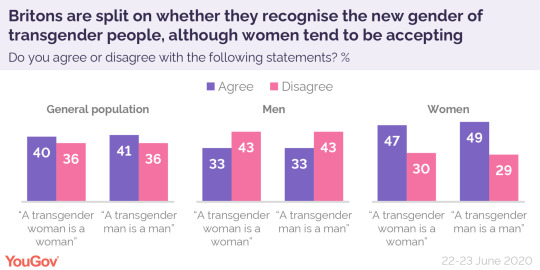
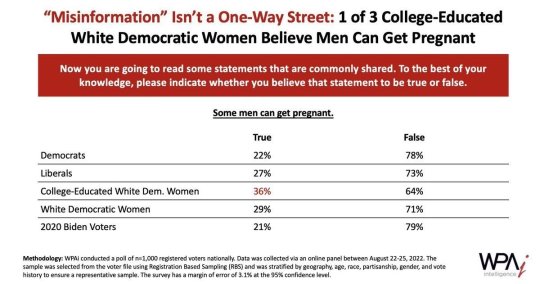
This isn't a war between men and women, as some would like to assert.
It's really a war between different denominations of feminism. Like Catholicism vs Protestantism. Or Sunni vs Shi'a Islam.
One thing that's hilarious and worth pointing out: gender-critical feminists will sometimes say things along the lines of, well that agreeableness was socialized into women by "the patriarchy" to make them compliant. Which means they're denying the same evolved sex-based differences that they started off defending. Like claiming to be a Catholic while denying transubstantiation.
Either sex-differences are real, and can explain different participation rates in physics and kindergarten teaching, different career priorities and trajectories (and thus, the mythical "pay gap") and different work patterns as readily as they explain differences in swimming, cycling and weight-lifting performance, making "the patriarchy" as unnecessary as a god is to the existence of the universe... or they're not, and the gender-critical argument goes up in smoke in the flames of social constructivism. God can't be both good and unknowable.
#Louise Perry#stunning and brave#gender activism#gender ideology#queer theory#genderwang#motherese#infantilization#mothering#western feminism#sex based differences#sex differences#religion is a mental illness
166 notes
·
View notes
Photo









♡ like or reblog if you save ♡
#selena gomez#selena gomez icons#candids#candids 2015#public appearances#public appearances 2013#coach#selena paris#vanity fair oscar party#selena 2015#selena 2013
11 notes
·
View notes
Text

Lady Gaga en los Met Gala en New York (04/05/2015).
46 notes
·
View notes
Text
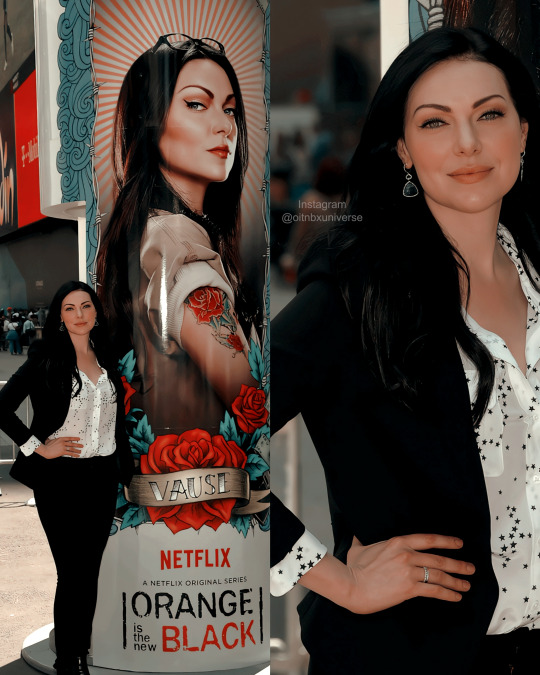
Laura Prepon asiste a la adquisición de Times Square "Orange Is The New Black" en Times Square, New York (10/06/2015).
#laura prepon#orange is the new black#oitnb#oitnbedit#oitnb cast#oitnbcast#oitnbforever#public appearances#2015#event
14 notes
·
View notes
Text
Lucy Hale 2015
PUBLIC APPEARANCES
PHOTOSHOOTS

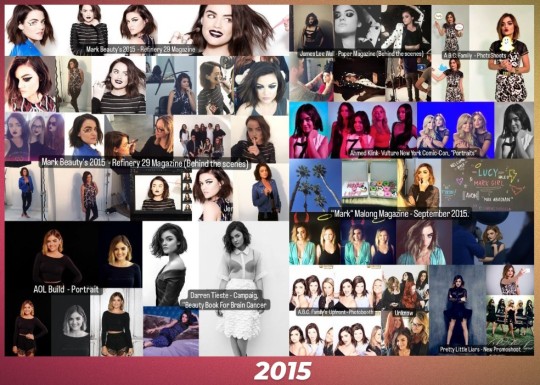
MAGAZINE SCANS

CANDIDS
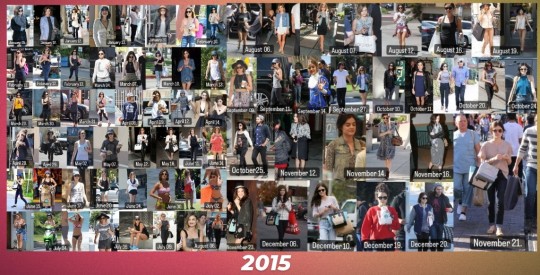
PERSONAL PHOTOS


#2015#lucyhalebeautiful#lucyhale#lucyhalestyle#publice appearance#perosonal photos#photoshoots#magazine scan#candid
0 notes
Text
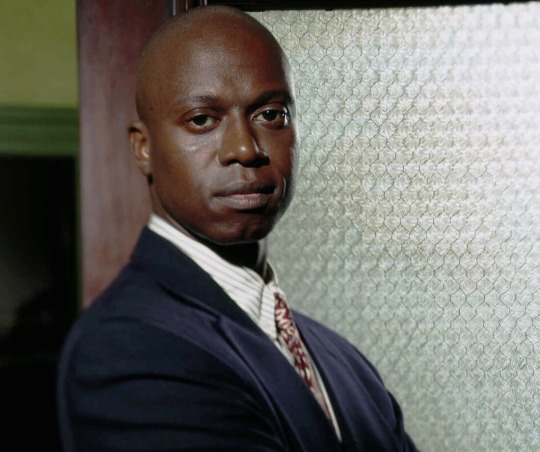
Andre Keith Braugher (/ˈbraʊ.ər/; July 1, 1962 – December 11, 2023) Stage, film and television actor best known for his roles as Detective Frank Pembleton in the NBC police drama series Homicide: Life on the Street (1993–1999) and Captain Raymond Holt in the Fox/NBC police sitcom Brooklyn Nine-Nine (2013–2021). Over his career, Braugher received two Primetime Emmy Awards, as well as two Golden Globe Award nominations.
Braugher started his career acting in numerous productions in The Public Theatre's Shakespeare in the Park. He transitioned his career into television gaining roles in Kojak (1989–1990), The Court-Martial of Jackie Robinson (1990), and The Tuskegee Airmen (1995), followed by leading roles in the ABC medical series Gideon's Crossing (2000–2001), the CBS crime series Hack (2002–2004) and the TNT comedy series Men of a Certain Age (2009–2011). He also appeared in numerous series such as Thief, The Good Fight, House, New Girl and BoJack Horseman.
In 2006, Braugher starred as Nick Atwater in the mini-series Thief for FX Networks, winning a second Emmy for his performance. He appeared on the TV series House, M.D. as Dr. Darryl Nolan, a psychiatrist who helps House recover from his addiction to Vicodin.
Braugher had a recurring role as defense attorney Bayard Ellis on Law & Order: Special Victims Unit from 2011–2015, and starred as the lead character, Capt. Marcus Chaplin, in ABC's 2012 military drama TV series Last Resort. In 2017, Braugher had a recurring role in season 4 of the Netflix animated series BoJack Horseman as California Gov. Woodchuck Coodchuck-Berkowitz. From 2013–2021, he starred in the Golden Globe-winning TV series Brooklyn Nine-Nine as the precinct captain, Raymond Holt. For his performance in Brooklyn Nine-Nine, he was nominated for four Primetime Emmy Awards for Outstanding Supporting Actor in a Comedy Series. (Wikipedia)
IMDb Listing
#Andre Braugher#TV#Obit#Obituary#O2023#Homicide: Life on the Streets#Brooklyn Nine-Nine#Law and Order: Special Victims Unit#Men of a Certain Age#BoJack Horseman#Last Resort#Hack#Gideon's Crossing
119 notes
·
View notes